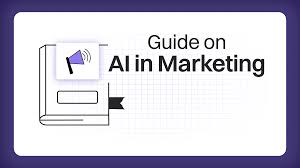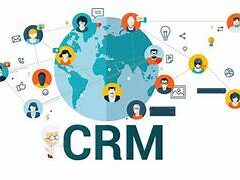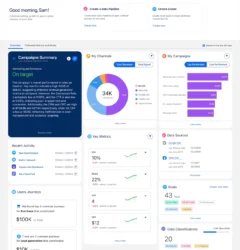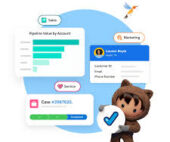The Ultimate Guide to AI in Marketing
AI-powered algorithms and machine learning are revolutionizing the marketing landscape by enabling swift processing and analysis of vast datasets. Unlike traditional methods, AI efficiently organizes large volumes of data in real time, redefining how marketing strategies are created and executed.
Marketing success hinges on effective data utilization, precise targeting, engaging content, and seamless workflows. AI simplifies these complexities, making them more accessible, scalable, and impactful. Here’s how AI transforms modern marketing.
Unleashing AI’s Potential in Marketing
AI has become a cornerstone for enhancing customer experiences and boosting marketing productivity. However, to fully leverage AI, it’s essential to understand its capabilities and implementation strategies.
Think of AI as your vehicle for uncovering actionable customer insights, optimizing campaigns, and creating tailored customer experiences. While the pace of AI’s evolution may seem overwhelming, this guide will help you take control and confidently drive your AI-powered marketing efforts.
Future Trends in Generative AI and Marketing
Generative AI is unlocking new possibilities in customer engagement. This guide explores the challenges, advantages, and emerging trends in AI-driven marketing. From attracting customers to maximizing ROI, you’ll discover best practices and real-world examples of successful AI adoption.
How AI Works in Marketing
AI uses advanced algorithms and pattern recognition to simulate human intelligence in processing data. Through machine learning and deep learning, it identifies trends, predicts outcomes, and automates tasks typically requiring human intervention.
Like humans learning from experience, AI improves with practice. It rapidly identifies consumer preferences, behaviors, and purchasing patterns. Two primary types of AI stand out in marketing:
- Predictive AI: Analyzes historical data to forecast outcomes, such as predicting customer purchases based on past behavior.
- Generative AI: Creates new content, such as text and images, based on learned data patterns. For instance, generative AI can produce realistic visuals or write content that mimics human authors.
These AI types work together—predictive AI extracts insights from data, while generative AI uses those insights to create personalized content and solutions. This synergy enables marketers to automate tasks, segment audiences, and deliver tailored messaging based on individual preferences.
AI in Action: Enhancing Customer Engagement
AI enables marketers to engage with customers more effectively by:
- Lookalike Modeling: Identifying shared traits among top customers to target similar audiences.
- Improved Data Collection: Refining methods to extract key insights from extensive datasets.
- Generative AI Content: Creating inclusive, culturally relevant content that resonates with diverse audiences.
- Optimized Retargeting: Continuously learning from interactions to improve future campaigns and strategies.
The Power of AI-Driven Marketing Analytics
AI-powered analytics revolutionize decision-making by identifying patterns and offering actionable insights. Marketers can use AI tools to:
- Track metrics like attribution modeling, customer behavior, and campaign performance.
- Gain deeper insights into the effectiveness of marketing strategies and channels.
- Predict behaviors, such as a customer’s likelihood to churn, enabling timely interventions.
Maximizing ROI with AI
AI enables businesses to expand audience reach, improve conversion rates, and enhance customer relationships through personalized content and product recommendations. Its real-time analytics empower marketers to make informed decisions, while automation frees up time for strategic innovation.
Navigating Challenges in AI Marketing
AI’s potential comes with challenges, including:
- Data Privacy and Security: Compliance with regulations is essential to maintaining consumer trust.
- Data Quality: Poor data can lead to inaccurate insights, so robust data management practices are crucial.
- Technical Expertise: Successful AI integration requires skilled teams to manage and optimize tools.
By prioritizing ethical practices, transparent data policies, and robust compliance measures, marketers can overcome these obstacles and leverage AI responsibly.
Best Practices for AI-Driven Marketing
To maximize the benefits of AI, marketers should:
- Build a Solid Foundation: Focus on ethical, strategic, and technological readiness.
- Unify and Analyze Data: Use AI to aggregate data for a holistic view of customers.
- Enhance Personalization: Leverage AI for audience segmentation and tailored experiences.
- Train Teams: Equip teams with skills like prompt engineering for AI-generated content.
- Automate Repetitive Tasks: Streamline workflows to free up resources for creative initiatives.
- Leverage Advanced Analytics: Continuously track and optimize campaign performance.
The Future: AI Copilots in Marketing
AI copilots—conversational AI integrated into platforms—are transforming marketing workflows. These tools draft content, provide recommendations, and offer guidance based on CRM data, significantly enhancing efficiency.
Looking Ahead: Emerging Trends in AI Marketing
Over the next two years, advancements in AI will continue to reshape marketing. Key trends include:
- Increased reliance on predictive and generative AI for hyper-personalized campaigns.
- Greater emphasis on data security and trust-building measures.
- Automation of end-to-end marketing processes, from campaign creation to performance tracking.
By embracing these advancements, marketers can deliver exceptional customer experiences, drive business growth, and stay competitive in an evolving digital landscape.
AI is not just a tool—it’s a transformative force. By integrating AI into your marketing strategy, you can unlock unparalleled opportunities to engage customers, optimize campaigns, and propel your organization into the future.
🔔🔔 Follow us on LinkedIn 🔔🔔













